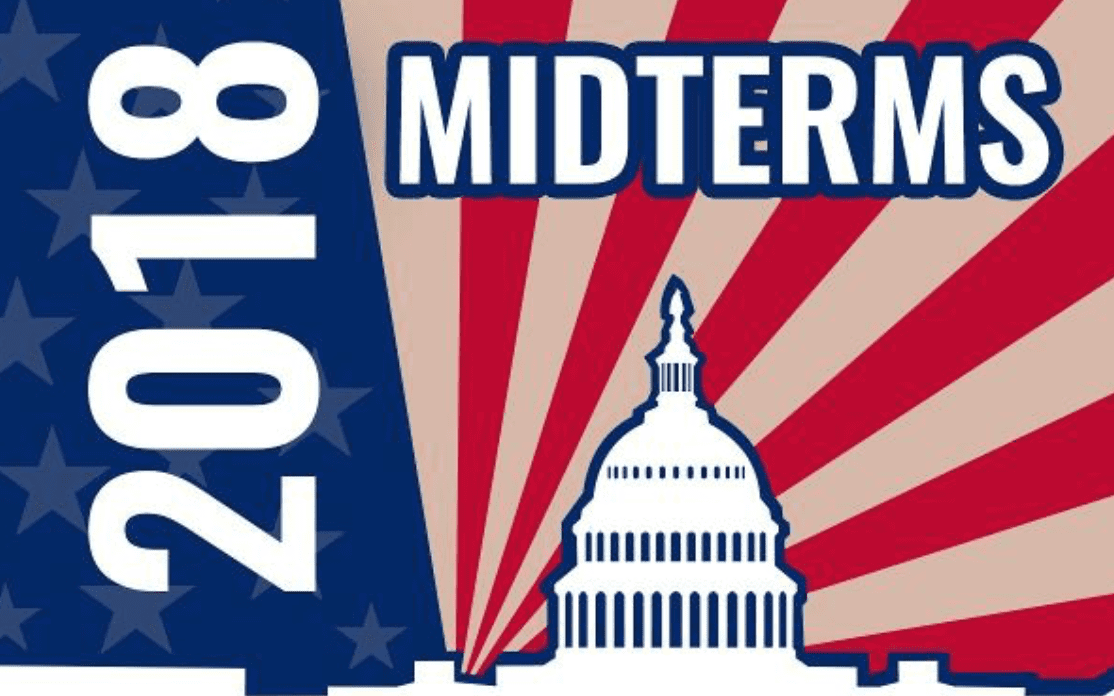This content is restricted to subscribers

The views, opinions and positions expressed by columnists and contributors are the author’s alone. They do not inherently or expressly reflect the views, opinions and/or positions of our publication.

This content is restricted to subscribers
The views, opinions and positions expressed by columnists and contributors are the author’s alone. They do not inherently or expressly reflect the views, opinions and/or positions of our publication.

What happens when a blue wave hits a red rock? Basically life goes on.
Don't worry. This is not a "time may tell" column about the U.S. midterms. It's an assessment of the strength of political passions in the American republic, and of their constitution, and the extent to which political partisans exaggerate the importance and possibility of decisive victories.
Off-year elections are normally of interest only to nerds. Turnout is low and the "ins" who control the White House usually lose seats because only the "outs" are worked up, at being "out". This election, by contrast, was widely hailed as a referendum on Donald Trump. And the American people spoke with one voice: They care.
They just don't agree. A lot of people love Trump and a lot hate him. Result: a split decision, with the Democrats gaining a House majority while Republicans increased theirs in the Senate while their lead in governorships shrank. To some extent the high voter turnout was bad thing, indicating less civic engagement than inflamed partisanship. But the result shows the strength of the American constitution nevertheless.
Liberals went into the evening hoping for a massive "blue wave" and came out saying oh well, at least the Democratic House majority is a check on Trump. Which it is. And a vindication of the genius of America's founders. More than 200 years later, following political turmoil, civil war, social upheaval and technological revolutions their creation still steers between autocracy and paralysis, allowing the government to function without concentrating power unduly and accommodating strongly divergent political currents. Which is where life goes on, inside and outside of politics.
Back in July I wrote in Loonie Politics that in confidently predicting a blue wave the New York Times and others were letting the wish father the thought. There were reasons for expecting the Democrats to gain seats, from strong anti-Trump feeling to his upset 2016 victory by carrying strongly Democratic states to the party that controls the White House almost invariably losing seats in off-year elections. But there were also reasons for expecting the Republicans to withstand the onslaught, from the fact that the Democrats were defending more and more vulnerable Senate seats to liberals' inability to accept that there are legitimate reasons for supporting Trump to weariness or even rage at liberal scorn for anyone who does so.
So the result was a draw. Especially as gaining 30 House seats isn't a smash-mouth victory. Barack Obama managed to punt 63 in his first midterm, and went on bleeding House and Senate seats. So if you're going to read 30 as a massive repudiation of Trump and the GOP, obviously 63 was a permanent rejection of the Democrats.
Except they won the House back eight years later. Life is like that. It goes on.
Political partisans are given to apocalyptic visions. Not just of what horsemen will be loosed in the land should they lose some otherwise unremarkable contest but also of the Rapture that awaits when they win. Almost anyone who triumphs in an election seems to think the populace has finally permanently come to its senses and the opposition has been jeered off the stage and will never be back, especially given the wonderful policies and dazzling outcomes that must surely follow.
It doesn't work that way. Politics is an extremely competitive business and parties that lose either mend their ways or get replaced by more flexible rivals. Fact for Nerds: After FDR's 1936 reelection landslide, the Republicans were reduced to 16 Senate seats (of 96) and 88 in the House. Yet this ideologically rigid, backward, out-of-touch dying party rebounded to win the Senate a decade later (with 51) and the House (with 246), in an era when the Democrats truly were the natural majority party through an unstable mix of New Deal liberalism in the urban north and white supremacy in the rural south.
Salvation! Hallelujah! Except then they lost again.
Likewise, the 2018 midterms were neither the end of the world nor the beginning of a brave new one. Indeed, elections aren't and can't be. Not even disasters like Germany's in 1932 that paved the way to Hitler's dictatorship; his ultimate seizure of ultimate power required series of subsequent unfortunate events that could have turned out differently and a lamentable spirit of popular acquiescence. But let us invoke Godwin's law and terminate the Hitler digression.
The main point is, with Samuel Johnson, "How small, of all that human hearts endure, That part which laws or kings can cause or cure". To put apocalyptic expectations on politics is to invite disappointment and risk disaster.
The American constitution resists such tendencies. And gives the American people time to cool down and get their sense of perspective back. After all, it was just an election.
Photo Credit: Business Insider UK
The views, opinions and positions expressed by columnists and contributors are the author’s alone. They do not inherently or expressly reflect the views, opinions and/or positions of our publication.